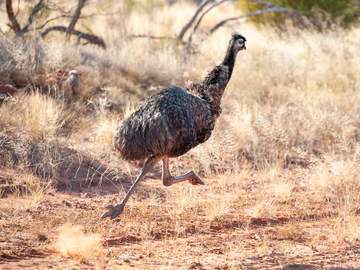
What is a Verb?
A verb is a word that shows an action (‘I will jog to the store’), occurrence (‘The bananas ripened overnight’), or state of being (‘I have the same right to exist as you’). Almost every sentence requires a verb, or else nothing happens!
Transitive Verbs
There are two main kinds of verb: transitive verbs and intransitive verbs. Transitive verbs require a direct object, meaning a noun, pronoun, or noun phrase that receives the action of the verb and so completes the sentence’s meaning. The direct object typically answers the question what? or who? Here are some examples:
“The kids like pickles.” (Like is the verb and pickles are the direct object.)
“Can you ask the neighbor when the yard sale will be?” (Ask is the verb and the noun phrase the neighbor is the direct object.)
"We ate cake for breakfast." (Ate is the verb and cake is the direct object.)
Intransitive Verbs
Intransitive verbs do not take direct objects. They are often followed by words that answer questions such as where?, when?, how?, or how long? Here are some examples of intransitive verbs:
“Her car died suddenly last week.” (The verb is die and we are told when it happened.)
“We ate at a fancy restaurant.” (The verb is ate and we are told where this happened)
“Someone was coughing loudly.” (The verb is coughing and we are told how this was happening.)
“The movie marathon took all night to finish watching.” (The verb is took and we are told how long this took.)
A single verb can also have both transitive and intransitive uses, as in “They are playing soccer” (transitive) and “They’ve been playing all afternoon” (intransitive).
Other parts of speech:
What is an adjective?
What is an adverb?
What is a noun?
What is a preposition?




